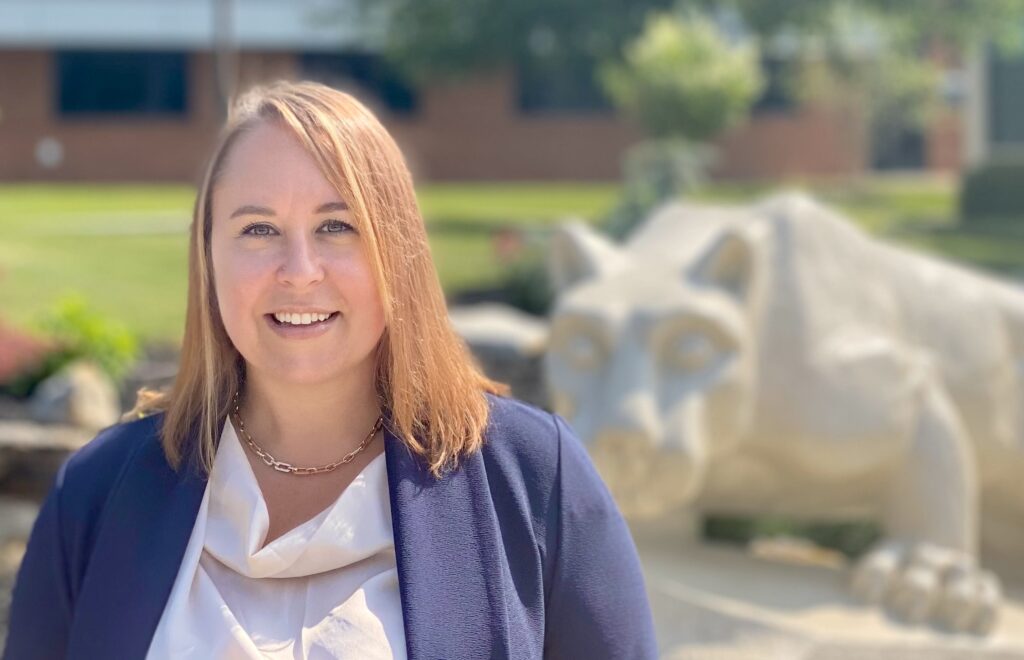
Dr. Megan Baril is an instructor in the online Human Development and Family Studies program offered through Penn State World Campus. She wrote the curriculum for our Introduction to Human Development and Family Studies course (HD FS 129), and also has taught courses on child development, research methods, and interventions in human development.
We chatted recently with Megan about how she teaches online courses, her affinity for Penn State, and what she takes away from teaching adult learners.
How do you help students build connections in your classes?
We use tools like VoiceThread to encourage students to discuss the material we are learning in the course. I’ve found that, when online students can see their classmates and interact with them around the topics we are learning, it helps them to not feel isolated, no matter where they in the world.
What have you learned from your students?
I’m always inspired by my students. I’ve taught students in the traditional on-campus environment, but online, most students are already on their own, doing amazing things. Some are in the military, serving all over the world. Others are parents trying to navigate parenting and school with full-time jobs.
My students have lot on their plate, and yet have also decided to further their education. I hold great respect for my students, and I want to support them however I can in their educational journey.
What’s the best part about teaching human development and family studies?
The material is very relevant to everyone’s life—we all develop and change. I enjoy helping students think about their own experiences, or the experiences of family members or people they know, through the lens of what we know from social science.
For example, in Introduction to Human Development and Family Studies, I require students to interview someone in their life who is an emerging adult [the stage between adolescence and full-fledged adulthood] about their life experiences. The students need to reflect on the interview through the lens of what we have learned in the course. This type of assignment helps to make the theory and research we learn in the course tangible and meaningful to them.
What’s the best part about being a Penn Stater?
I spent seven years in State College, pursuing my Ph.D. and teaching, and it really was a very happy season of my life. I met my husband here, I had my first baby here. Happy Valley has its name for a reason; for me, it’s such a happy place, and because of that, I’m thankful to still be tied to Penn State full-time through teaching.
We make it up to State College about twice a year, and every time we pull into town, I’m asking my husband when we can move back!
What do you find interesting about teaching online vs. face to face?
I love the flexibility of teaching online. Some days, I get to do work in my pajamas in bed, which is great. I love being able to do my job around the needs of my family—I know that’s one of the reasons many students choose online courses as well.
I know online education is growing, and it’s neat to be at the forefront of these changes.

What about when you’re not teaching? What do you like to do for fun?
As many parents of young children know, I don’t have too much free time. Most of my attention is devoted to my husband and three children, and they keep me quite busy! I also like to garden, and my family is actively involved in our church. We also like to camp and hike when we can find the time.
Who was your childhood inspiration?
I remember being very inspired by my piano teacher, Gail Wright, growing up. She was a woman who loved her work and her family.
If all universities closed today, what career would you want?
I would like to go into medicine—probably as a labor and delivery nurse. Another career I think would be very interesting is adoption law.

